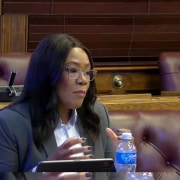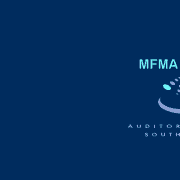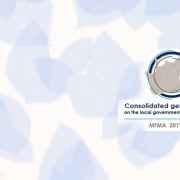|
Getting your Trinity Audio player ready...
|
Released in Parliament last week by auditor-general (AG) Kimi Makwetu, the 2016-2017 local government audit results present a bleak picture. The AG attributes the overall deterioration in local municipality audit results and lack of compliance with the Municipal Finance Management Act (MFMA) to advice and warnings that were largely not heeded.
Part one of our new mini-series on local government audits addresses the most recent outcomes. In part two we will examine the proposed amendments to the Public Audit Act – these will finally see the AG’s office acquiring power to deal with culprits.
“The results are grim and make clear that the local government system in South Africa is failing,” says Phephelaphi Dube, director of the Centre for Constitutional Rights, in a statement.
Of South Africa’s 257 municipalities that were audited, only 16 improved while 45 slid backwards. Only 33 municipalities (13%) managed to produce quality financial statements and performance reports and complied with all key legislation‚ thus receiving a clean audit.
None of the municipalities in Free State, North West or Limpopo received a clean audit. In fact, only 13% of all municipalities received a clean audit – down from 20% in the previous period.
Five years after the AG’s office highlighted a lack of decisiveness in dealing with the lack of accountability, weaknesses in internal controls, and the risks that needed attention in local government, Makwetu says, not much has changed. “We are still faced with the same accountability and governance challenges we had flagged throughout these years.”
Lack of consequences, he says, is a large part of the reason why there is no significant progress towards better results, while a reversal in audit outcomes is painfully apparent.
MFMA main findings
Download the full report.
Download the executive summary.
- 257 municipalities and 21 municipal entities were audited in 2016-17 – down from 278 in the previous auditing period, because 37 municipalities were closed down and 16 new municipalities were established.
- Only 33 municipalities (13%) received a clean audit, achieved by producing quality financial statements and performance reports, and complying with all key legislation;
- Only one municipality received a clean audit in Gauteng, but it was also the the only province that had a 100% unqualified audit opinion;
- Twenty-one municipalities received a clean audit in the Western Cape;
- Two municipalities received a clean audit in Eastern Cape;
- Six municipalities received a clean audit in KwaZulu-Natal;
- Two municipalities received a clean audit in Mpumalanga;
- One municipality received a clean audit in Northern Cape;
- No municipalities in North West, Limpopo or Free State received a clean audit;
- The audit outcomes of the eight metros regressed overall, with Buffalo City improving but Mangaung and the City of Cape Town regressing;
- Irregular expenditure increased by 75%, from R16-billion in 2015-16 to R28-billion in 2016-17;
- R15-billion of this was from previous years but only identified and reported in 2016-17, thanks to a greater effort by municipalities to identify and transparently report on irregular expenditure incurred in the previous years. Makwetu is quick to point out that while there is a notable improvement in detection, there should also be a more robust prevention of irregular expenditure;
- The balance of R13-billion relates to payments or expenses incurred in 2016-17 by the new local government administration, and represents 4% of the local government expenditure budget;
- Eastern Cape led the way in irregular expenditure, racking up R13.6-billion in 2016-17 compared with R5.4-billion in the previous financial year;
- North West incurred R4.3-billion in 2016-17 compared with R3.2-billion in 2015-16. This was also 15% of the total irregular expenditure in 2016-17, representing 22% of their provincial local government expenditure budget;
- Gauteng incurred R3.7-billion in 2016-17 compared with R1.3-billion in 2015-16;
- KwaZulu-Natal incurred R2.5-billion compared with R2-billion in 2015-16;
- Mpumalanga incurred nearly R2-billion in 2016-17 compared with R1.5-billion in 2915-16;
- Limpopo incurred R1.3-billion in 2016-17 compared with R1.3-billion in 2015-16;
- Free State incurred R675-million in 2016-17 compared with R813-million in 2015-16;
- Northern Cape incurred R261-million in 2016-17 compared with R457-million in 2015-16
- Western Cape incurred R173-million in 2016-17 compared with R174-million in 2015-16.
- interventions were required at all 18 municipalities in the Free State, 10 in Eastern Cape, 14 in Northern Cape, 13 in North West, 12 in KwaZulu-Natal, five in Limpopo and Mpumalanga, four in Gauteng and two in Western Cape.
AG to finally get teeth
However, there is a new development that will put Makwetu’s mind at rest regarding consequences and accountability. The National Assembly has approved amendments to the Public Audit Act (PAA), which will ensure that dishonest and corrupt public officials are held accountable, says Wouter Wessels, the FF Plus’s parliamentary spokesperson on finance, in a statement.
“Until now, a lack of accountability has been a major cause of fraud, corruption and misappropriation at public institutions.”
The amendments to the PAA will give the AG greater power to recover monies lost through financial mismanagement and corruption, among others.
See part two of our series, to be published next week, for more detail on these legislative amendments.
Hostile work environment
Furthermore, the MFMA report was released amid reports that some of Makwetu’s officials were threatened with their lives while doing their job.
The AG notes that the environment for auditing was becoming increasingly difficult. “The audit environment became more hostile with increased contestation of audit findings and pushbacks whereby our audit processes and the motives of our audit teams were questioned. At some auditees, pressure was placed on audit teams to change conclusions purely to avoid negative audit outcomes or the disclosure of irregular expenditure – without sufficient grounds.”
Other auditees used delaying tactics, failing to provide information and evidence when requested.
“If audit outcomes are not as desired,” Makwetu says, “energy should be directed to addressing the problem and not to coercing the auditors to change their conclusions.”








